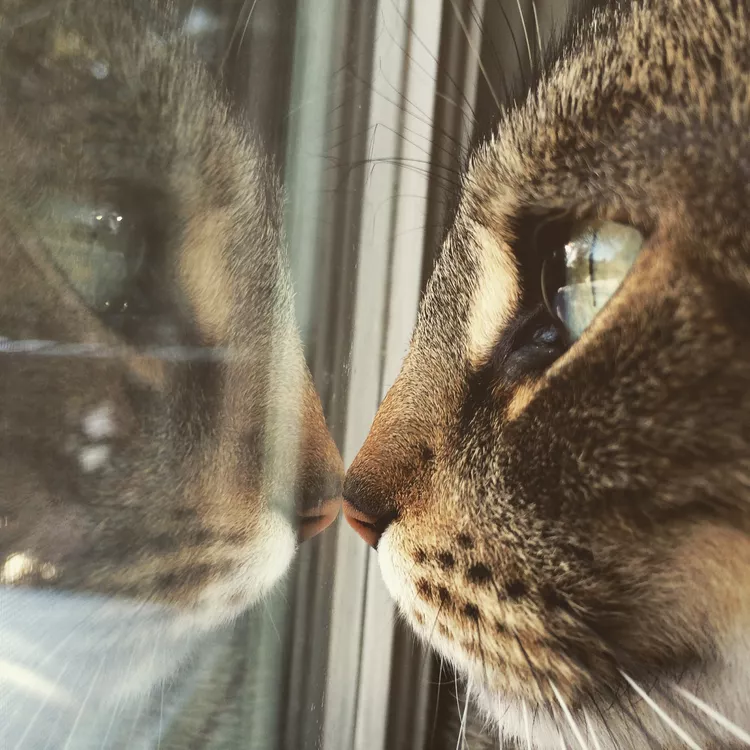
Cats exhibit quirky behavior at times, but owners who know their cats' habits will easily recognize signs of inappropriate mentation. If a cat seems unusually confused, disoriented, or uncoordinated, then a visit to the vet is warranted. The cat could be suffering from acute sickness, a neurological disorder, or exposure to an environmental toxin, causing abnormal behavior.
Inappropriate mentation is a broad term that refers to behaviors induced by disrupted cognitive functioning.
Brain "misfiring" can manifest in a variety of abnormal behaviors. Sometimes these issues appear suddenly, caused by an injury or inflammation. Chronic brain disorders may induce gradual changes in behavior that worsen over time, resulting in a compromised quality of life.
Cats learn by remembering. But a kitten who suffered a head injury early in life may have damaged the portion of the brain that affects short-term memory. A traumatic brain injury could account for difficulty remembering the location of food bowls or litter boxes. It can also explain an unsteady gait, lack of coordination, and balance problems.
Traumatic injuries can also cause stunted growth. So a new pet that seems to be on the smaller side for its age and breed, or a kitten who fails to grow, may have previously suffered an injury.
Neurological disorders can also cause disorientation, pacing, and confusion just following an episode. And old age can result in senility, presenting as forgetfulness, anxiety, and uncoordinated behavior.
There is much debate over whether or not a cat can have a mental illness. If your cat's behavior seems "off," it could be ill or could have a problem with its nervous system. Possible causes of inappropriate mentation include:
At the vet's office, any potential brain injury is treated as an emergency, especially if it was a result of recent head trauma. In addition to stabilizing your pet, the vet will perform an exam to evaluate your cat's neurological system, including an MRI or CT scan, which will also help rule out inflammatory conditions or tumors.
In the case of environmental toxin exposure or a seizure disorder, blood tests will help determine if there is organ damage (specifically to the kidneys or liver). Blood work will also indicate whether or not there is a metabolic problem causing seizures. Severe seizure cases may require an EEG to measure the electrical activity in your cat's brain.
Any cat that suffers a potential head injury needs to be examined by a veterinarian. A vet will first stabilize the injured kitty using IV fluids and oxygen. However, a full recovery is not always guaranteed.
Cats exposed to environmental toxins are often in danger of dying. Treatment by a vet may include induction of vomiting, charcoal to absorb the toxin from the gut, and IV fluids and medication.
For seizure disorders, a vet will prescribe medications to control the seizures.
There is currently no cure for feline dementia or senility. Maintaining a good routine, providing options for exercise, and feeding your cat high-quality food will help treat further decline. Supplements like omega-3 fatty acids, SAMe, and melatonin may improve brain function in older cats.
The prognosis for cats with brain disorders varies according to the type and severity of the malfunction.
After a brain injury, your cat may act differently, lose its coordination, or exhibit a personality change. If this happens, the best you can do is provide a loving and supporting environment, reduce stressors, and eliminate unpredictable events as much as possible. Observe your cat's limitations and provide a lifestyle that works within them.
Acute illnesses, inflammation, tumors, or toxins can be life-threatening and their prognoses depend on treatment options. Seizure disorders are often manageable with lifelong medication. Senility is incurable, but some senior cats can maintain a good quality of life with supportive care.
While there is little you can do to prevent brain injury, seizure disorders, or senility, you can help support proper brain health in your cat's developmental years. Early nutrition greatly influences kitten development, so feed your kitten high-quality food. Also, provide your kitten opportunities to exercise and sharpen its skills to create greater coordination down the road.
Also, restrict your cat's access to household toxins such as rat poison, cleaners, fertilizers, poisonous garden plants, or pesticides.
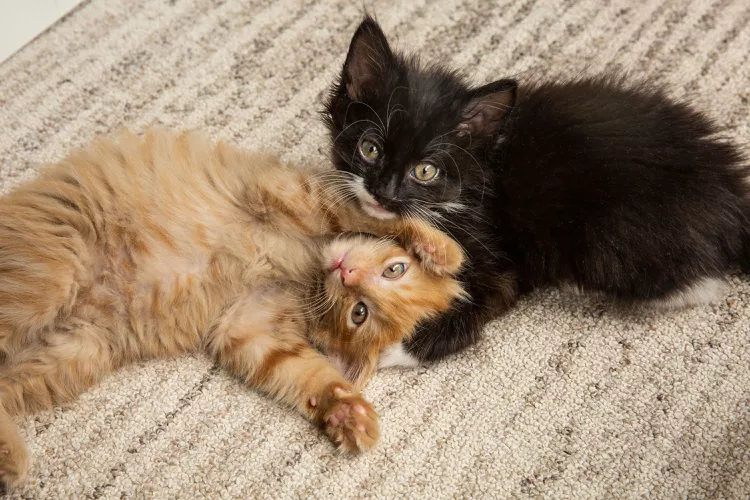
Why Two Kittens Are Better Than One
There are benefits of adopting two kittens, such as more feasible training and companionship between them.
Everything You Need to Know About Raising Your First Cat
Whether you are thinking about getting a cat or just adopted your first one, these are the things to know to make your relationship a lasting one.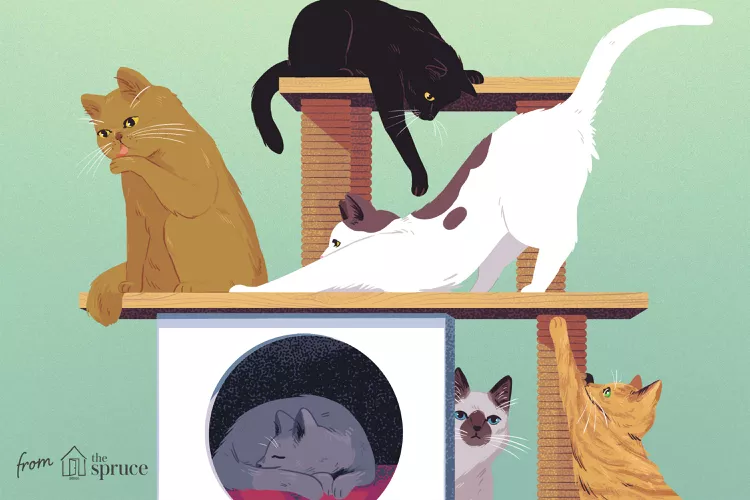
How Can I Tell the Sex of a Cat?
Telling male and female cats apart can be difficult for those who don't know what they're looking for. Here are helpful tips to discover their sex.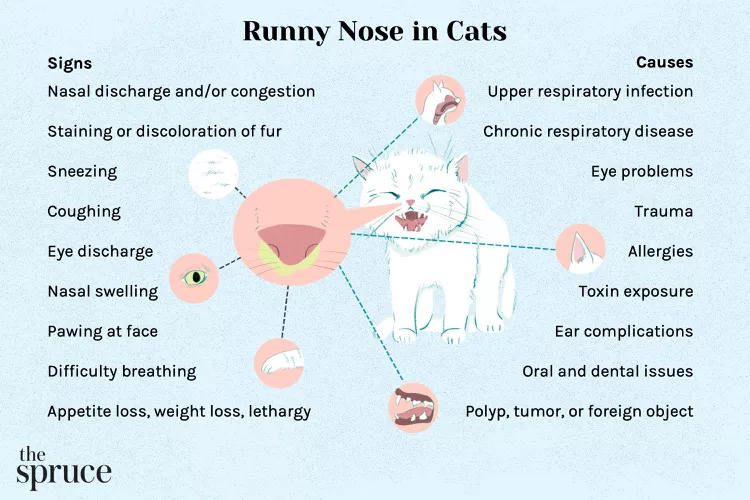
Runny Nose in Cats: Causes and Treatment
Cats get runny noses due to upper respiratory issues, but many conditions can cause this. Learn the causes of runny noses in cats and the associated signs. Find out how vets diagnose and treat cats with runny noses.
How Long Can You Safely Leave Canned Cat Food Out?
You cannot safely leave canned cat food out all day. Twenty to 30 minutes is the max, so give smaller portions and reheat food for later feedings.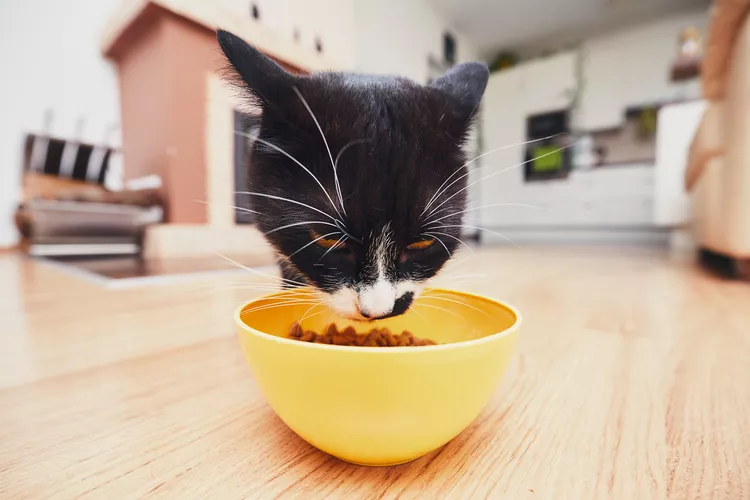
Meat Byproducts in Cat Food
Most cat experts recommend premium brands of cat food that avoid ingredients like byproducts and chicken meal. Learn what to look for on the label.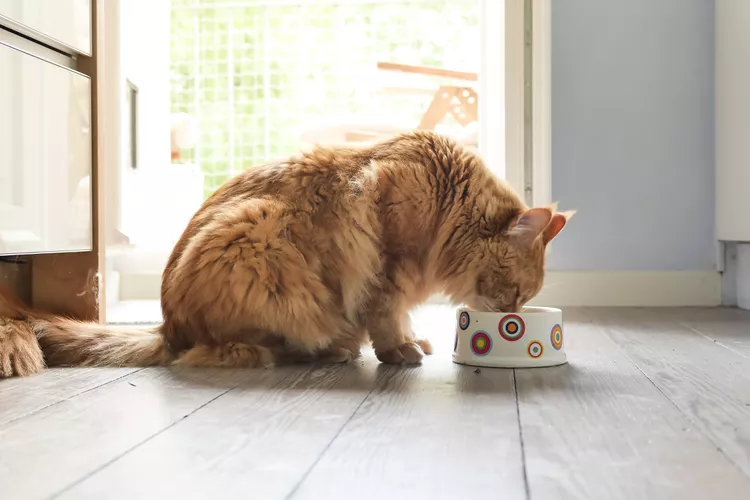
How Much Wet Food to Feed a Cat Every Day
The amount of wet food your cat needs depends on factors such as age, weight, body condition, and lifestyle. Learn how much wet food to feed your cat.
Taurine for Cats
Taurine is an essential animal protein in your cat's diet. Learn more about the various ways it supports your feline's body.
The Different Types of Pet-Friendly Workplaces
Discover the different types of pet-friendly workplaces and the benefits they offer employees. Learn how to create a pet-friendly workplace and the best practices for pet owners.
8 Halloween Safety Tips for Pets
The spooky holiday can be overstimulating and even dangerous for pets. Here's how to avoid the problems caused by toxic candy and incessant doorbells.
Why You Should Keep Cooked Bones Away From Your Dog This Holiday Season
People should be aware of the dangers of cooked bones, especially around the holidays when they might be more accessible to your pup.
Can Dogs Eat Squash? Here's What a A Vet Thinks
Dogs can safely eat squash as long as it's prepared correctly. Find out how to properly feed this versatile fruit to your dog.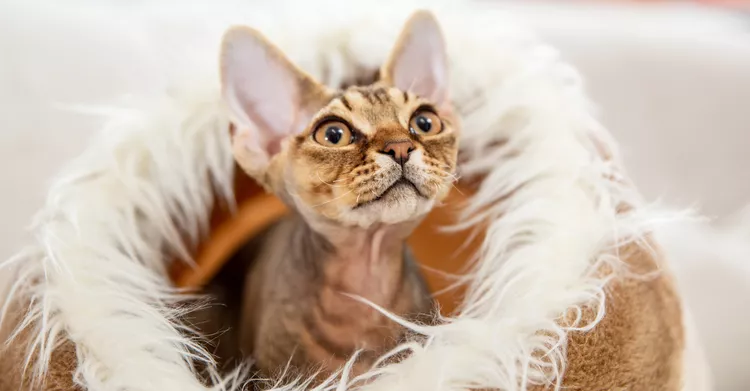
16 Small Cat Breeds That Are Petite Purring Machines
Small cat breeds like the Singapura and munchkin may be smaller than an average housecat, but they leave a giant imprint on your heart.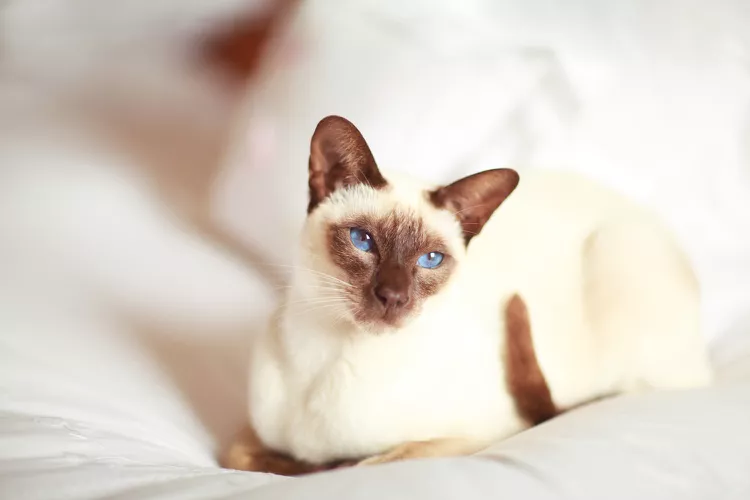
10 Best Cats With Big Ears
Cats with big ears often look extra endearing. Check out some common big-eared cats, including the Abyssinian, Devon Rex, Siamese, Sphynx, and more.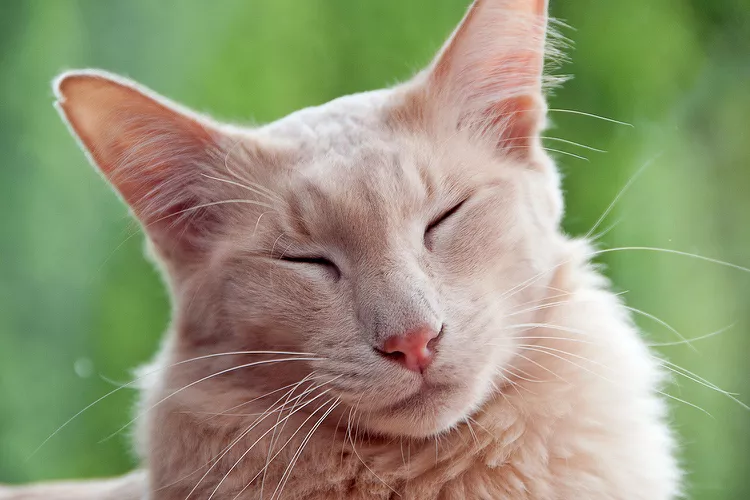
Javanese (Colorpoint Longhair): Cat Breed Profile, Characteristics & Care
The Javanese is a semi-longhaired, color-pointed cat of Siamese type. They are related to the Siamese, Colorpoint Shorthair, and Balinese breeds.
How to Stop Aggression in Dogs
Dog aggression can be a serious behavior issue for pet owners. Learn how to stop aggression in dogs before someone gets hurt.
Should Dogs Be Allowed on Furniture?
Should you let your dog on the couch or in the bed with you? Are there any reasons we should not let dogs on the furniture? Here's what to know.
Why Do Dogs Eat Rocks?
One of the most common non-food items for dogs to eat are rocks. Here's what to know about why dogs eat them and how can you stop your dog from eating rocks.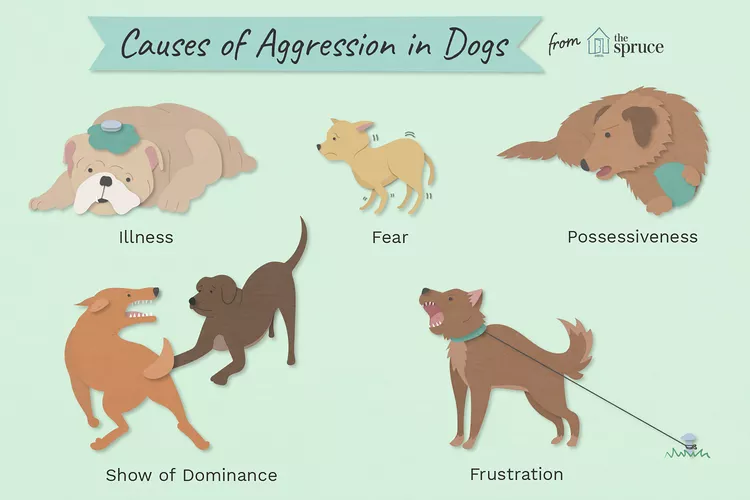
Why Dogs Get Aggressive and How to Stop It
Why is your dog biting you aggressively? Sometimes dogs can become aggressive with little warning. Find out what causes your dog to become aggressive so you can work with the behavior.
Thai Ridgeback: Dog Breed Characteristics & Care
Learn all about the Thai Ridgeback, a rare breed from Thailand. Find out how to care for the loyal dog and where to buy or adopt one.